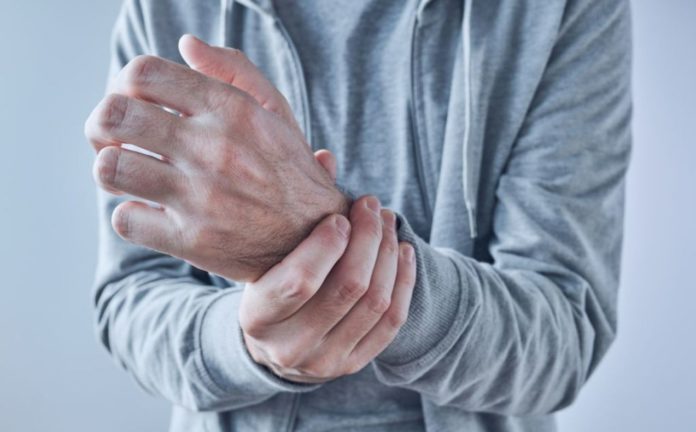People with a hereditary vulnerability to autoimmunity are thought to develop autoimmune diseases like rheumatoid arthritis and Type 1 diabetes when their immune systems are triggered to attack their own bodies by something in the environment.
Scientists have made strides in identifying genetic characteristics that put people at risk, but environmental triggers have been more difficult to pin down.
It has been revealed by researchers at Washington University School of Medicine in St. Louis that a viral infection can put in motion a damaging process that results in autoimmunity long after the virus has resolved.
T cells, a type of immune cell that plays a critical role in many autoimmune diseases, were studied to see how viral infection affected them.
The study, which was conducted in mice, demonstrated that murine roseolovirus infects the thymus — the organ that is responsible for identifying and eliminating self-destructive T cells — and disturbs the organ’s screening mechanism.
Months after infection, the mice develop a stomach-related autoimmune disease caused by self-destructive T cells.
The study, which was published in the Journal of Experimental Medicine today, explains a previously unknown mechanism by which a virus might cause autoimmunity. It also suggests that human roseoloviruses, which are close relatives of mouse roseoloviruses, should be investigated as potential human autoimmune causes.
“It is very hard to find the culprit of a crime that was never even at the scene of the crime,” says senior author Wayne M. Yokoyama, adding that “we often look directly in the diseased tissue, and if we find no virus we conclude that the disease was not caused by a virus. But here we have a situation in which a virus is doing its damage someplace else entirely. This virus goes to the thymus, which is where T cells undergo a process to select those cells useful for immune defense but also get rid of T cells that are too likely to damage the body’s own tissues. And what we find is that this whole process, which is called central tolerance, is affected. T cells that shouldn’t leave the thymus get out, and they manifest months later in the stomach, causing an autoimmune disease in a location that was never infected with the virus.”
Roseoloviruses are herpesviruses that infect humans and mice. Roseoloviruses cause roseola, a moderate childhood ailment characterized by a fever and rash that lasts a few days. By the time they start kindergarten, almost everyone has been infected with at least one roseolovirus. Roseoloviruses, like other herpesviruses, cause lifetime infections, albeit the virus lies latent after the initial infection and rarely causes symptoms.
Roseoloviruses have long been suspected of being associated with autoimmunity by scientists. The abundance of viruses, however, makes any such link impossible to investigate. When practically everyone is infected early in life, it’s difficult to look for differences between infected and uninfected persons.
Instead, Yokoyama with Tarin Bigley, the first author, investigated mouse roseolovirus, a newly discovered virus that infects the thymus and T cells of wild mice. The researchers used newborn mice to infect. Even though there were no symptoms of the virus in their stomachs, all of the mice had developed autoimmune gastritis, or stomach inflammation, 12 weeks after being exposed to the virus. Three months after the virus was introduced, mice did not develop gastritis if the virus was treated with an antiviral medicine within the first few days, while it was still actively reproducing. However, if the researchers waited until the mice were 8 weeks old to administer an antiviral — after the active infection had cleared but before the mice showed signs of stomach troubles — the treatment was ineffective, and the mice developed gastritis a few weeks later.
Scientists already knew that viral infection can cause autoimmunity if some of the virus’s proteins are similar to those found in humans. Normal human cells react with virus-specific antibodies. The researchers discovered that gastritis-affected mice had produced antibodies to proteins found on stomach cells. They had, however, produced antibodies against a wide range of normal proteins linked to other autoimmune diseases. They also had a large number of T cells that targeted the body’s own normal proteins, as well as other T cell population modifications that skewed the immune system toward autoimmunity.
“We don’t think the autoimmune gastritis is the result of molecular mimicry because we observed such a broad autoantibody response,” Bigley adds. “The observation that infected mice produced diverse autoantibodies, in addition to the anti-stomach autoantibodies, suggested that murine roseolovirus infection early in life was inducing a wide-ranging defect in the body’s ability to avoid targeting its own proteins. This is why we focused our studies on the impact of infection on central tolerance rather than molecular mimicry.”
“Human autoimmune disease also may occur via viral infection that gets cleared but leaves damage that can cause autoimmunity,” Yokoyama adds. “But if so, there has to be some other factor that we don’t understand yet that makes some people more susceptible to the autoimmune effects of roseolovirus infection, because almost all people are infected, but most people do not get autoimmune diseases. That is a really important topic for further investigation.”
Image Credit: Getty
You were reading: Autoimmune disease: unknown way virus causes autoimmunity – study finds
